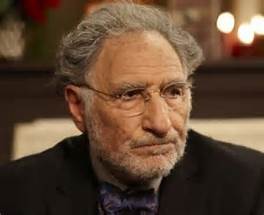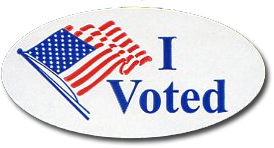Society can’t quite make up its mind about entertainment. Some insist that what we choose for entertainment is a reflection of who we are as a people. Others argue that our entertainment influences who we become. Others try to draw a distinction between different types of entertainment, such as violent movies have no influence, but violent video games do. But one thing I’ve not heard refuted is the idea that what we choose for entertainment is significant.
Which leads me to speculate on the significance of our growing obsession with anti-heroes. Anti-heroes come in several flavors, of course, the first being a hero who is simply not all that heroic. They’re more of an every-man with no unusual levels of skill or power or ability. I’m not talking about this type. I’m referring more to the “bad/semi-good person who does bad things to the right people” and “bad person who does bad things for bad reasons and may or may not find redemption before the end” flavors of anti-hero.
Pop culture is packed with them lately. Most of our top cable dramas revolve around them. Many of our movies center on anti-heroes. Even large portions of popular music idolize anti-hero culture. We don’t seem to mind, so long as they’re really good at what they do–often without ever questioning whether there was a need for what they do. Forget “the end justifies the means”, it’s rapidly becoming “the means justifies the means.”
So is it any wonder that people are becoming anti-heroes in real life? Is it any surprise we have major political leaders advising supporters to “punch back twice as hard”, expressing a desire to take an opponent behind the school and beat them, or daydreaming of taking a bat to a colleague they disagree with? Is it any wonder that a common tactic–supposedly for bringing about positive social change–is to take someone to task for a careless remark (or shirt) (which often is taken out of context) by broadcasting their supposed sins as loudly as possible in order to gather enough mass to destroy that person’s reputation, drive them from their livelihood, threaten them with all manner of harm, and do the same to anyone who would dare speak for them?
Are we surprised to see people, rather than waiting to get all the details, rising up in an instant to not just protest, but to riot, loot, destroy, and injure or kill–often their own neighborhoods and their own neighbors? Is it really so hard to imagine, or even accept, that political parties and candidates might send operatives to stir up trouble at their opponents’ events in order to tar that opponent’s image or intimidate supporters?
It shouldn’t be a surprise. That’s what we pay to see in our entertainment. It shouldn’t surprise us that the modern activist is willing to engage in all manner of reprehensible behavior, and even commit all manner of crimes in order to bring down someone they see as deserving of destruction. We know they know their behavior is wrong, because they cry foul load and long if their opponents do the same. But they somehow justify it when it’s them doing it.
We’re growing really good at justifying things. A champion of the other side is caught in immoral behavior? Crucify him! A champion on our side is caught done as bad or worse? It’s all a plot by the other side! It’s not a big deal! It’s a distraction from what’s really important! We forgive, absolve, and forget, because they’re on our side.
We forget far too easily that wrong behavior is wrong for a reason, and under any circumstances. We fail to consider that every questionable or outright wrong tactic we employ gives our enemies, justifiably or not, an excuse to not just emulate, but escalate. Punch back twice as hard, right?
It’s a difficult train to dismount. If we try to step it back now our opponents are going to slaughter us. If we don’t give it everything we’ve got we might not win. And our cause is so worthwhile it’s worth breaking not only the eggs but bashing the chickens to death to get our omelet. It’s inconceivable that those we are trying to change may not trust us to lead them to that change when they see what we’re willing to do to get there.
Seriously, who is more likely to get you to change? Someone who sits down next to you and patiently explains that while they love you and think you have much to offer, some of your behavior is wrong and needs to change, and here’s a plan to get there? Or someone who walks up waving a bat menacingly and tells you you’re scum and you’d better change now or else you’re going to get a beat-down? Oh, the latter may get results, but only until the bat-handler isn’t looking and they can get their hands on a gun.
See, the problem with “the end justifies the means” is that we can’t often even agree on whether the end is good, let alone the means. If anything, the means employed only convince the target that the end must be even worse. And far too often we fail to even wait long enough to see if the beginning truly justifies the end. The only thing worse than an anti-hero is an impatient one who can’t even be bothered to make sure their targets are truly deserving of their fate.
It’s the reason we can’t seem to stop bullying. We try to convince children not to bully one another, when all the time the message we’re really sending is “it’s okay to bully so long as you’re an adult and you’re convinced you’re in the right.” Bullying is not a childhood phenomenon. We just change the name when we age so as to cover our tracks better. I mean, really. Do we imagine to ourselves that playground bullies are wracked with guilt the entire time, knowing full well what they’re doing is wrong and unjustified, and if only the right person would just understand them they’d stop? No, they think their behavior is justified. That kid’s a wimpy little weasel who needs to toughen up. That dork over there is just too weird to leave alone. That girl said something I didn’t like about something that matters to me.
Bullies sometimes grow out of it, but far too often they simply find other bullies with whom they find common cause–which cause makes justifying their behavior so much easier and adult-sounding. They find that together they can be even more effective, with the added bonus of the smug self-righteousness they can feel when they take another scalp. They’re still bullies. They’ve just become more sophisticated and can dress their actions in a cloak of legitimacy.
It’s no accident a recent anti-hero movie was called “Suicide Squad”. If we continue this pattern of anti-hero, anti-social behavior we’re going to take ourselves down. Society is only successful in defending itself when it can convince enough people it’s worth protecting. Much of the heat and fury of the current presidential election could be taken as a warning sign. Our two major candidates are doing a poor job of convincing us that their means is going to get us to where they say they want us to go. We may be questioning whether a society that embraces those means can truly be worth fighting for, let alone produce the ends they claim.
Meanwhile, in an effort to forget the mess we see around us, we continue to turn to our entertainment to distract us from it all.



